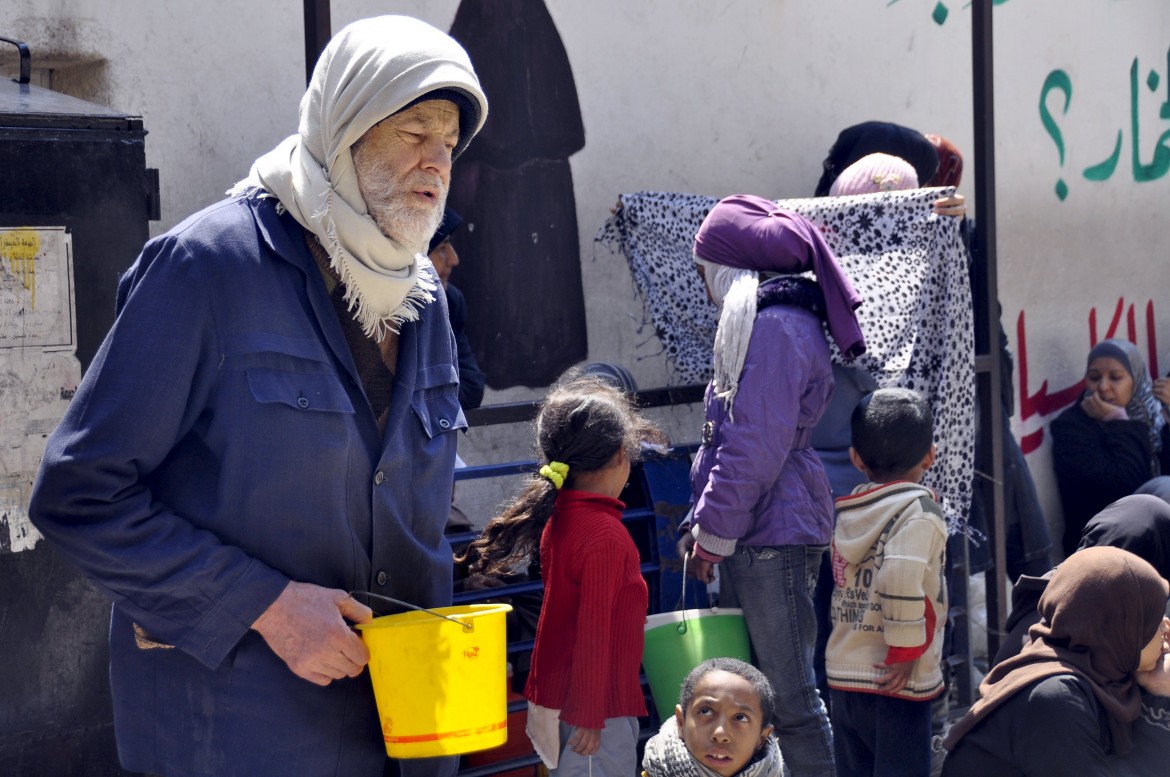Reportage
After US cuts to Palestinian refugees, UN launches a $277M appeal
The United Nations mandate to support displaced Palestinians continues, but their funding has been drastically reduced under the Trump administration. ‘As long as there is no solution for the Israeli-Palestinian conflict, there will be millions of people who will need our help.’

They need $277 million (€242 million) to meet the needs of the Palestinians in Syria, Jordan and Lebanon. This is the figure that UNRWA hopes to raise with its Syria Regional Crisis Emergency Appeal, an initiative it launched in early February from Beirut.
The appeal is part of the larger 2019 fundraising drive by the UN agency, aiming to raise the sum of $1.2 billion. For the past 70 years, the UNRWA has been providing services and humanitarian aid to Palestinian refugees in the Middle East, helping a total of 5.4 million people.
In Syria, the living conditions of the Palestinians, just like those of the Syrians, have undergone dramatic changes over the last eight years of war, as Amanya Michael Ebye, deputy director of the UNRWA in Syria, explained to us: “122,000 Palestinians have left the country, and out of the 438,000 who stayed, 95 percent are dependent on the UNRWA, meaning that they live below the poverty line, whereas only 6 percent were in that condition before 2011.”
Thirty percent of the Palestinians in Syria no longer have a home, and 60 percent of them are displaced persons. The UNRWA facilities (schools, clinics, offices) were heavily damaged by the fighting, particularly in the area of Yarmouk, south of Damascus, which has been the site of violent clashes since 2012.
After it fell under ISIS control in 2015, it remained under siege for years, leaving its inhabitants to literally face starvation, until last May, when the Syrian government announced it had regained control over the region. Other areas that have been almost completely destroyed by the fighting are in Dera’a (10,000-17,000 inhabitants) and in Ei, in the Tal region, northeast of Aleppo (over 6,000 inhabitants).
“No one lives in Yarmouk today, but before 2011, around 160,000 people lived there,” Ebye told us. “We have 23 facilities there, 18 of which have been seriously damaged, and almost all of which will have to be rebuilt. We currently estimate that we will need $20 million, but our technical staff could not access many of the facilities because of unexploded munitions. I think more money will be needed.”
The issue of funding for the UNRWA, which has been in financial difficulty for some time, was particularly brought to the fore last September, when the United States announced that it would cut its funding for the UN agency, ending a policy of support that had previously been pursued by all US presidents, both Democrats and Republicans.
The cut led to a hole of $446 million (€390 million) in the budget for 2018. “It has been a tough year”—says Claudio Cordone, the director of UNRWA in Lebanon—“but we managed to make up the loss thanks to the contributions from other countries.” However, the agency has had to make cuts to its staff and programs, for example in the Gaza Strip, where 118 people have lost their jobs.
For 2019, UNRWA’s funding drive is aiming for the same amount it raised last year: $1.2 billion, including $277 million for the Syrian crisis, so that it could continue to provide essential services, including education, health care and social services, emergency humanitarian aid and a cash assistance program for 418,000 Palestinians in Syria, as well as for another 18,500 who fled to Jordan and 28,800 who have been displaced to Lebanon, where they often live in precarious conditions because of their uncertain legal status and lack of social protection mechanisms.
“Our financial crisis is not over,” concluded Cordone, adding that, at the same time, the UNRWA’s mission was not over either. “As long as there is no solution for the Israeli-Palestinian conflict, there will be millions of people who will need our help. This mandate has been entrusted to us by the United Nations, and is an investment in people’s future and in stability.”
Originally published at https://ilmanifesto.it/gli-usa-tagliano-lunrwa-si-appella-al-mondo-fondi-per-i-profughi/ on 2019-02-19
